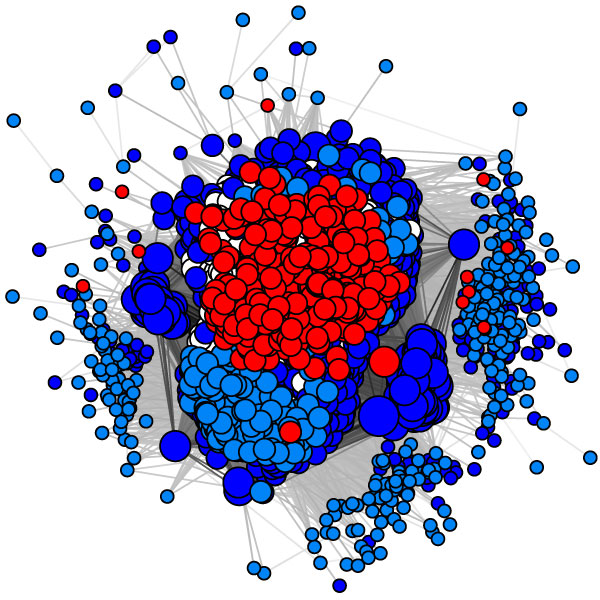Individuals and agents in many systems spontaneously organize to form structures such as flocks, swarms, and clusters. Investigating the principles that govern the formation and behavior of large groups in natural systems requires understanding the structure of clusters, their connectivity, how their identities develop, and how information propagates. Similar goals are also important in statistics and machine learning for understanding massive clouds of high-dimensional data, where one relies on properties of graphs encoding data similarity. Likewise connectivity and structure play an important role in studies of network dynamics.
Lectures are in Wean Hall 7218.
Speakers:
- Mikhail Belkin Ohio State University
- Andrea Bertozzi University of California, Los Angeles
- Alfred Bruckstein Technion
- Jian-Guo Liu Duke University
- Mauro Maggioni Duke University
- Georgi Medvedev Drexel University
- Cristopher Moore Santa Fe Institute
- Mason Porter University of Oxford
- Amit Singer Princeton University
- Eitan Tadmor University of Maryland
- Florian Theil University of Warwick
- James von Brecht California State University, Long Beach
A limited amount of travel and local lodging is available for researchers in the early stages of their career who want to attend the full program, especially for graduate students and post-doctoral fellows. Deadline for applications for support is March 31.
Registration and application for aid are at the Ki-Net Conference siteOrganizers:
Robert Pego, Carnegie Mellon University, rpego@cmu.edu
Dejan Slepčev, Carnegie Mellon University, slepcev@math.cmu.edu
Eitan Tadmor, University of Maryland, tadmor@cscamm.umd.edu
Contact Information:
Center for Nonlinear Analysis
Carnegie Mellon University
Department of Mathematical Sciences
Pittsburgh, PA 15213
Telephone: (412) 268-2545
Fax: (412) 268-6380
Funding provided by the National Science Foundation through the KI-net Grant and the Center for Nonlinear Analysis, CMU.
Image courtesy of Jeub, Balachandran, Porter, Mucha, and Mahoney.





